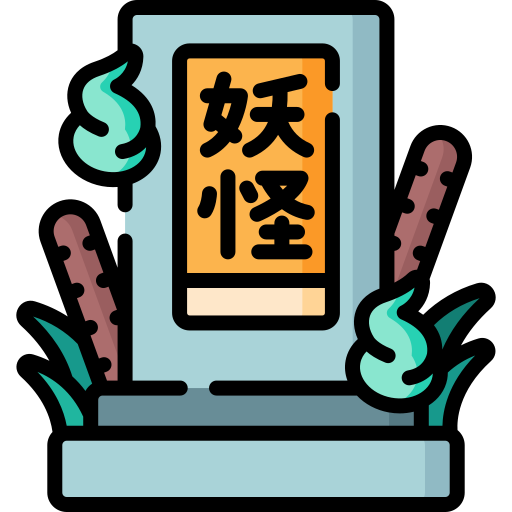Have you ever watched anime and heard a character repeatedly say “oi oi oi” when something surprising happens? This distinctly Japanese expression might seem simple, but it carries a wealth of nuance that changes based on context and tone. Today, we’re diving deep into the oi oi oi meaning in Japanese culture and how you can use it naturally in conversations.
Want to start learning Japanese right away?
Access our Free Study Guides with grammar explanations, vocabulary lists, and study tips. All at no cost.
What Does “Oi Oi Oi” Mean in Japanese?
The phrase “oi oi oi” (オイオイオイ) is a versatile Japanese expression that primarily conveys surprise, disbelief, or playful exasperation. Unlike more formal Japanese phrases, this colloquial expression adapts its meaning based on how it’s delivered and the situation at hand.
In its simplest form, the oi oi oi meaning in Japanese translates to a mixture of:
- “Hey, wait a minute…”
- “Come on now…”
- “You’ve got to be kidding me…”
But that barely scratches the surface of how richly expressive this simple phrase can be!

The 3 Main Uses of “Oi Oi Oi” in Everyday Japanese
1. Expressing Sudden Surprise
When something unexpected happens, “oi oi oi” serves as an immediate reaction of shock or surprise.
Example: Your friend drops their phone in a puddle. You: “オイオイオイ、スマホ大丈夫?” (Oi oi oi, sumaho daijōbu?) “Whoa whoa whoa, is your phone okay?”
The tone here is concerned but light—perfect for situations that are surprising but not catastrophic.
2. Showing Playful Disbelief
When someone makes an outlandish claim or does something unbelievable, “oi oi oi” communicates skepticism or disbelief without being harsh.
Example: Friend: “I ate three large pizzas by myself last night!” Response: “オイオイオイ、冗談でしょう?” (Oi oi oi, jōdan deshou?) “Come on now, you’re joking, right?”
This usage often includes a hint of amusement—you’re questioning what you’ve heard, but in a friendly way.
3. Gentle Admonishment
Parents and friends often use “oi oi oi” as a soft way to express disapproval without serious scolding.
Example: A child spills juice deliberately. Parent: “オイオイオイ、何やってるの?” (Oi oi oi, nani yatteru no?) “Hey hey hey, what are you doing?”
The tone is crucial here—delivered with a smile, it comes across as affectionate rather than angry.
Why Tone Matters When Using “Oi Oi Oi”
Just as when learning how to say “how are you” in Japanese, mastering the tone is essential with “oi oi oi.” The same three syllables can communicate dramatically different meanings:
- Soft and rising tone: Shows genuine surprise or concern
- Drawn-out middle “oi”: Indicates disbelief or skepticism
- Quick and sharp delivery: Might signal mild irritation
- Accompanied by laughter: Purely playful or teasing
Cultural Context: When and Where to Use “Oi Oi Oi”
Understanding the oi oi oi meaning isn’t complete without knowing its appropriate contexts:
✅ Appropriate Settings:
- Casual conversations with friends
- Relaxed family settings
- Informal gatherings
- When watching sports or games together
❌ Inappropriate Settings:
- Business meetings
- Formal ceremonies
- When speaking to superiors or elders
- Academic environments
Learning these contextual nuances is just as important as mastering directions in Japanese for navigating both the language and culture successfully.
Love Japan? Stay in the Loop!
Hi, I’m Jesse! Join 100+ learners and get my best Japanese learning tips straight to your inbox.
Alternative Expressions Similar to “Oi Oi Oi”
Japanese has several expressions that convey similar feelings:
- “Ara ara” (あらあら): Often used by older women to express mild surprise
- “Maa maa” (まあまあ): Used to calm a situation or express moderate surprise
- “Chotto chotto” (ちょっとちょっと): A gentle way to grab attention or express concern
Each of these alternatives carries its own nuance and typical user profile, giving you options to express yourself naturally in different situations.
Practical Tips for Using “Oi Oi Oi” Naturally
- Start in safe contexts – Try using it first with Japanese friends who will appreciate your effort to sound natural
- Listen carefully – Pay attention to how native speakers use it in anime or Japanese TV shows
- Practice the intonation – Record yourself saying it in different tones and compare to native examples
- Pair with appropriate facial expressions – Your expression should match the sentiment behind your “oi oi oi”
Q&A: Quick Answers About “Oi Oi Oi” Meaning
Q: What does “oi oi oi” mean in Japanese? A: “Oi oi oi” in Japanese expresses surprise, disbelief, or playful exasperation depending on context and tone.
Q: Is “oi oi oi” formal or informal? A: “Oi oi oi” is strictly informal and should only be used in casual settings with friends or family.
Q: Can “oi oi oi” be offensive? A: When used with the wrong tone or in formal settings, it can come across as rude or inappropriate.
Q: Is “oi oi oi” the same as the English “oi”? A: While similar in sound, the Japanese expression has different cultural contexts and usage patterns than the English interjection.

Wrap Up: Mastering the Oi Oi Oi Meaning
Understanding expressions like “oi oi oi” is an essential step toward sounding more natural in Japanese. Just like learning weather vocabulary in Japanese, these colloquial phrases help you connect with native speakers on a more authentic level.
For more in-depth guides on mastering Japanese expressions and speaking naturally, check out our free resources page where you can download comprehensive learning guides that will take your Japanese fluency to the next level.
Have you heard “oi oi oi” used in anime or Japanese dramas? Try incorporating it into your next Japanese conversation and experience how a simple expression can make your speech sound instantly more natural!
Looking to enhance your Japanese language skills further? Explore our detailed guides on learning Japanese without a teacher and discover how everyday expressions can transform your language journey.
Connect with Fellow Japanese Learners!
Ask questions, get study tips, and take part in weekly challenges. Join a community of motivated learners exploring both the language and culture of Japan!




